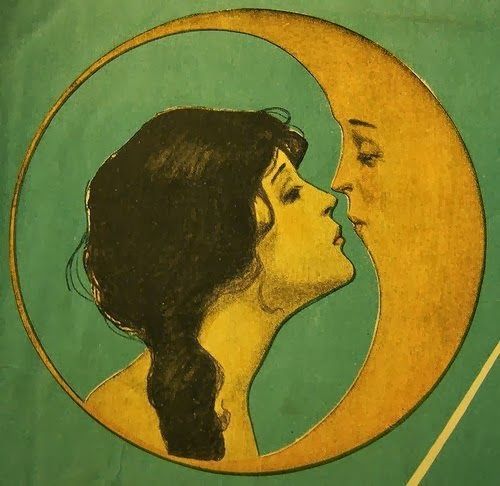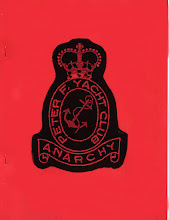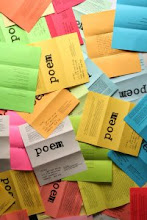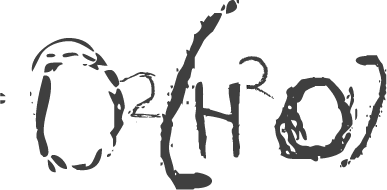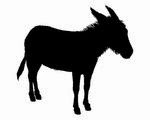As
many of you know, 2018 marks TWENTY-FIVE
YEARS of above/ground press production. While the official anniversary doesn’t
actually occur until July (including the annual launch/reading/party, with
launches of at least a couple new titles), I’ve been going through some of the numbers,
realizing that the press is well over a combined eight hundred and fifty publications
to date (including Touch the Donkey,
but not including the two dozen or so forthcoming titles).
That
is an ENORMOUS amount of publications. I daresay: there might be one or two chapbook presses that get close to the volume, or the quality, or the longevity, but rarely all
three.
With
a couple of items produced under different press names (or none at all) over
1992 and into 1993, the above/ground press officially emerged as the press name
in July 1993, with the publication of a poetry anthology and a chapbook of my
own, soon followed by a chapbook by Ottawa poet David Collins. With a focus on poetry
chapbooks and distribution, the press has also produced numerous journals (five
issues of Missing Jacket [see a bibliography here], forty-five issues of
the long poem magazine STANZAS [see a bibliography here],
sixteen of the twenty-five issues (so far) of The Peter F. Yacht Club,
six issues of drop and sixteen issues (so far) of Touch the Donkey [see the list of issues + interviews online here]), as well as numerous anthologies, three hundred and forty-two “poem” broadsides [see a bibliography up to #287 here; link to the most recent publications here], occasional pamphlets,
and even a single comic book by Greg Kerr in 1996. There have been publications
produced for book fairs in Toronto, Buffalo, Ottawa, Vancouver, New Orleans and
Philadelphia, for conferences and AWPs across North America, literary
festivals, readings and a variety of tours.
Some
items appear quickly, within a day or two of acceptance, and others have been
scheduled months in advance. I have folded and stapled every damned one (with
the rare exception, of course) myself, usually sitting in front of the
television with long-arm stapler (I’m on my third) and worn-down fingerprints.
I’ve produced items in runs as low as fifty copies, and as much as twelve
hundred. STANZAS held pretty
consistently at a print run (distributed gratis) of a thousand, the same number
of covers I currently produce for each issue of Touch the Donkey (making more copies of the insides as required).
Chapbooks these days are most often in runs of either two hundred and fifty or
three hundred (especially given I’ve nearly one hundred subscribers). We only
have so much space, after all.

I suppose I should
mention now that there are plans afoot for an anniversary project or two,
including one that has already begun work (but won’t be announced or launched
until August/September, most likely). Either way, you can certainly still subscribe for 2018. I mean, why haven’t you?
I
toyed with building a list of all the authors the press has published over the
quarter century – anthologies, chapbooks, broadsides, journals, etcetera – but the
list simply became too large and unmanageable. Instead, I’ll focus on the
chapbooks: including the two dozen or so forthcoming items (he says,
optimistically), the press has produced three
hundred and ninety-six chapbooks by two hundred and twenty-nine separate authors
(including translators). I feel incredibly fortunate to have been allowed to
produce such stellar work by a large array of incredible poets, and the chapbook list of authors includes
(alphabetically): Jordan Abel, Paige Ackerson-Kiely, Carrie Olivia Adams, Cameron Anstee, Sacha Archer,
Rae Armantrout, Josh Auerbach, Kemeny Babineau, Jennifer Baker, Nelson Ball,
Douglas Barbour, John Barton, Gary Barwin, Eric Baus, Derek Beaulieu, Ashley-Elisabeth
Best, Gregory Betts, Joe Blades, Michael Blouin, Jon Boisvert, Christian Bök,
Stephanie Bolster, George Bowering, Tim Bowling, Jamie Bradley, Shannon Bramer,
Sean Braune, Alyssa Bridgman, Ross Brighton, Stephen Brockwell, Sarah Burgoyne,
Andrew Burke, Brian Burke, Jenna Butler, Stephen Cain, Natalee Caple, Emily
Carr, Christophe Casamassima, Jason Christie, George Elliot Clarke, Dana
Claxton, Mark Cochrane, David Collins, Stephen Collis, Sarah Cook, Dennis
Cooley, Valerie Coulton, jwcurry, Marita Dachsel, Frank Davey, Faizal Deen, Amy
Dennis, Michael Dennis, Michelle Desberats, Jason Dewinetz, Anita Dolman, Rhonda
Douglas, Sarah Dowling, Lise Downe, Buck Downs, Kristina Drake, nathan dueck,
Susanne Dyckman, Amanda Earl, Kevin McPherson Eckhoff, Sue Elmslie, Lori
Emerson, Greg Evason, Tamara Fairchild, Jesse Patrick Ferguson, Ellen Field,
Jon Paul Fiorentino, Judith Fitzgerald, Ryan Fitzpatrick, Kyle Flemmer, Neil
Flowers, Eric Folsom, Sarah Fox, Laurie Fuhr, David Fujino, Hélène Gelèns, Artie
Gold, Noah Eli Gordon, Adele Graf, Lea Graham, Allison Grayhurst, Catharina
Gripenberg, Kate Greenstreet, Adrienne Gruber, Kristjana Gunnars, Anna
Gurton-Wachter, Gwendolyn Guth, Helen Hajnoczky, Phil Hall, Brecken Hancock,
Natalie Hanna, Robin Hannah, Sharon Harris, j/j hastain, William Hawkins,
Hailey Higdon, Robert Hogg, Matthew Holmes, Michael Holmes, Carrie Hunter,
Brenda Iijima, Marilyn Irwin, Roman Ivashkiv, Yuri Izdryk, Dean Irvine, Meghan
Jackson (lynes), Matthew Johnstone, D.G. Jones, Megan Kaminski, Stuart Kinmond,
Robert Kroetsch, Jennifer Kronovet, Ben Ladouceur, Seth Landman, Patrick Lane,
Clare Latremouille, John Lavery, Warren Layberry, N.W. Lea, Katy Lederer, Anne
Le Dressay, Jason Le Heup, John B. Lee, A.J. Levin, Sophie Levy, Erik Lindner,
damian lopes, Jeanette Lynes, Shannon Maguire, Rob Manery, Donato Mancini,
Sarah Mangold, Nicole Markotić, Camille Martin, Karen Massey, Shauna McCabe,
Marcus McCann, Una McDonnell, Gil McElroy, Andrew McEwen, David W. McFadden,
Barry McKinnon, kath maLean, rob mclennan, Kathryn MacLeod, Christine McNair,
Max Middle, philip miletic, Jay MillAr, Rachel Mindell, Rachel Moritz, Erín
Moure, Sandra Moussempès, Jennifer Mulligan, Sharon H. Nelson, John Newlove,
bpNichol, Geoffrey Nilson, Peter Norman, Ken Norris, Wanda O’Connor, Catherine
Owen, Abby Paige, Kathryn Payne, Pearl Pirie, Shane Plante, Deborah Poe, Julia
Polyck-O’Neill, Alessandro Porco, K.I. Press, Roland Prevost, Katie L. Price,
Elizabeth Ranier, Marthe Reed, Monty Reid, Eléna Rivera, Lisa Robertson,
Elizabeth Robinson, Miguel E. Ortiz Rodríguez, Stan Rogal, Sarah Rosenthal, Renée
Sarojini Saklikar, Kaia Sand, Larry Sawyer, Kate Schapira, Eric Schmaltz, Michael
Martin Shea, Kate Siklosi, Natalie Simpson, Edward Smallfield, Jessica Smith,
Pete Smith, Jennifer Stella, Jill Stengel, Fenn Stewart, Christine Stewart,
Anne Stone, Sarah Swan, Jake Syersak, Bronwen Tate, Hugh Thomas, lary timewell,
Janice Tokar, Dennis Tourbin, Amish Trivedi, Aaron Tucker, Chris Turnbull,
Michael Turner, Emily Ursuliak, R.M. Vaughan, Death Waits, Rosmarie Waldrop,
Andy Weaver, Andrew Wessels, Ian Whistle, Joshua Marie Wilkinson, Julia
Williams, Tal Yarkoni, Lesley Yalen, Deanna Young, Geoffrey Young and Eleni Zisimatos.
Thanks
to all of them, and to all of you for your attentions! There is so much more
still to be done (and so many more authors I would love to be able to produce chapbooks by)…


















![tenth anniversary Touch the Donkey [a small poetry journal] sale! until the end of April!](https://blogger.googleusercontent.com/img/a/AVvXsEi2jYOBBVNaoMuhOj-BprMchSuruXvCZH2PPniZkk9D30GVF_lQsZ-m9HqsyE4Vz_R01ijgBaze59MbSu3oKIdu4myONflgnuvoMuEdo4qPC7xf0-wB8eukbB6zK5ClasCL-N-iFKZDET3ZL6Ryt4ou8vlwmQEpOEj9Ng4Dcfuv2qybNKlVnRRfpuXrYtGG=s220)



